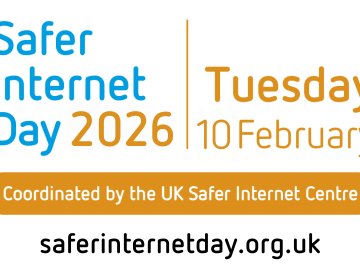Online hate speech is a growing problem, with abusive comments from peers one of the key causes of upset online for young people.
This is why SWGfL is working alongside partners to help deliver SELMA, a two year project that aims to tackle the problem of online hate speech by promoting mutual awareness, tolerance, and respect.
Each month we are focusing on a different dimension of the online hate speech phenomenon. In May we are exploring tolerance and empathy.
Teaching emotional intelligence to promote tolerance and empathy
Empathy is key to recognising, managing and positively responding to online hate. Nursing scholar Theresa Wiseman defined four key qualities of empathy, all of which play an important role in tackling hate speech online:
Perspective taking – being able to see the world as others see it by actively listening to and acknowledging their point of view.
Avoiding judgement – Being non-judgmental about a person's situation.
Recognising emotions – Identifying and understanding another person's emotions, which can only be achieved by first understanding our own emotions.
Communicating emotions – Connecting with another person to let them know they are not alone is key and requires effective communication.
An excellent summary of what empathy is can be found in the Brené Brown video below.
A core feature of the SELMA project is the opportunity for Social and Emotional Learning (SEL); building emotional intelligence and strategies for regulating emotions, as well as exploring the feelings and motives that underpin online hate.
Building empathy and emotional intelligence enables young people to support those who are the target of hate speech, identify the motivations of those who commit online hate, and develop effective strategies to manage, challenge and disrupt hate in their online communities.Promoting empathy and tolerance
Teaching and developing empathy also helps young people to understand how to promote mutual tolerance and respect whilst maintaining freedom of expression online in their own interactions, as well as to recognise and positively challenge the intolerant, discriminatory or hateful behaviour of others.
The SELMA Toolkit, which will be launched on 22 May 2019, will offer a wide range of SEL activities that educators can use to help young people acquire emotional intelligence, while acknowledging the problem of online hate speech and developing strategies to respond to it.
SELMA in action
Throughout the month of May, we will explore why promoting tolerance and empathy online is more relevant than ever, and how different stakeholders can achieve this, through the following actions:
Firstly, we will present a challenge addressed at young people to help them reflect on how they can effect a positive change in their environment. Carrying out 12 simple actions along three months of their choice, they will learn about the "other", engage with their peers, and think about their behaviour online.
Then, we will continue with our series of guest articles in which we ask people linked to the project to share their views on the phenomenon of online hate speech. In this occasion, Jacqueline Beauchere, Microsoft Chief Online Safety Officer and member of the SELMA Education Task Force against online hate speech will delve into how the industry approaches the imperative of fostering a tolerant and empathetic online culture among young people around the world.
Finally, as teachers and educators play a key role in creating tolerant and empathetic learning environments for children and young people, we will share a series of expert-approved teaching strategies to promote tolerance in the classroom. This last article will build on key insight from the SELMA Toolkit.
Meanwhile, we invite you to join the movement to promote tolerance and empathy online – be sure to keep an eye on our Twitter #SELMA_eu hashtag, while following us on Facebook.






